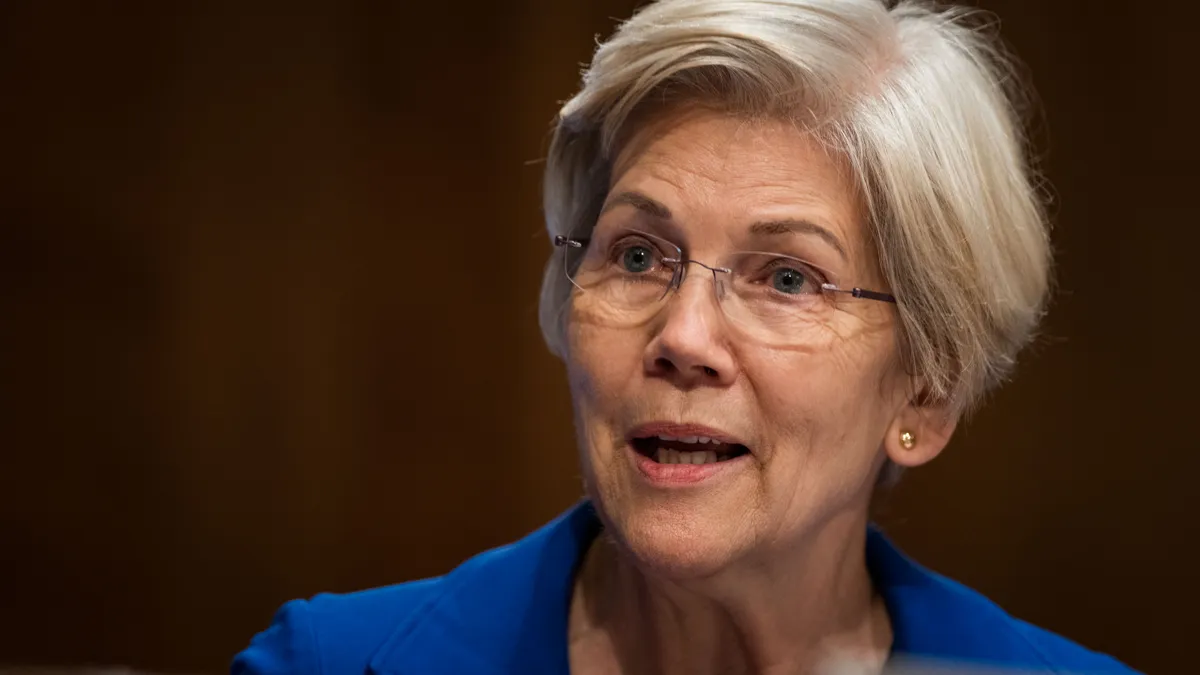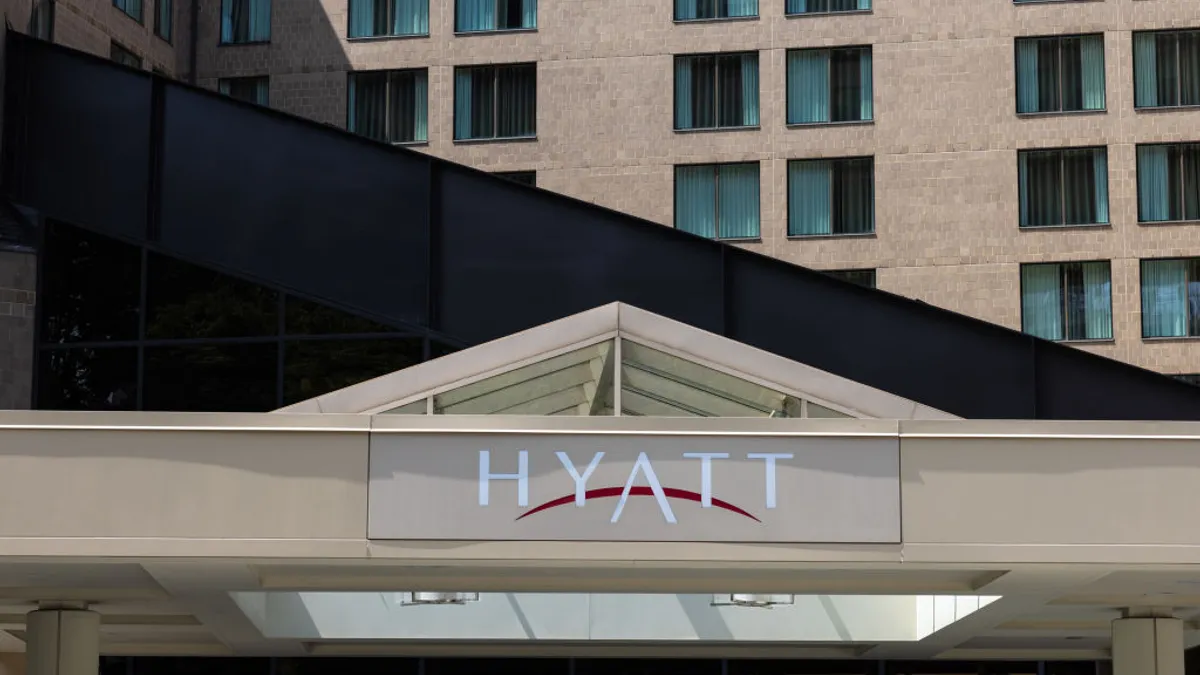Sen. Elizabeth Warren sent a letter to the Federal Trade Commission last night to express concern over Choice Hotels International’s “hostile takeover” of peer Wyndham Hotels & Resorts.
In the letter, shared exclusively with Hotel Dive, Warren claims a Choice Hotels-Wyndham merger would drive up prices for consumers, reduce competition in the marketplace and harm franchisees. She is asking FTC Chair Lina Khan “to closely scrutinize” the proposed acquisition and “oppose this deal if it violates antitrust law.”
The FTC is already investigating the possible merger following Choice’s $7.8 billion public bid to acquire its peer in October and public exchange offer in December, both of which Wyndham rejected. The public offers followed months of private negotiations between the companies, which Wyndham disengaged from in September.
Wyndham confirmed receipt of a “Second Request” from the FTC in early January. And during an earnings call on Feb. 20, Choice President and CEO Patrick Pacious reiterated that a “Second Request” process, as part of the investigation, had begun six weeks prior on Jan. 12.
The FTC is investigating antitrust concerns, which have been voiced by Wyndham and other hotel industry professionals — and now, a U.S. senator.
Driving market dominance
In her letter, Warren said the takeover “would create the largest branded hotel chain in the United States, giving one chain control over a huge portion of the hotel market.” Such a reduction in competition, the senator added, would “harm entrepreneur franchisees and lead to higher hotel rates for customers across the country.”
If Choice were to acquire Wyndham, Choice would own 46 different hotel brands — creating “a monopoly that can hide in plain sight,” Warren wrote.
Choice currently owns 22 hotel brands, including Radisson, Comfort and Quality Inn, while Wyndham owns 24 hotel brands, such as Days Inn and Echo Suites. The “increased market dominance would be most acutely felt in the economy and midscale markets,” Warren said.
If the merger were to happen, it would create the largest U.S. provider of hotel franchise services in the economy and midscale chain scales, with more than 55% market share in each, Wyndham detailed in a Dec. 18th press release.
Increased customer costs
Warren claims the merger would not only hurt franchisees — but customers, too.
“If the takeover of Wyndham is successful, Choice could use the reduced competition to raise prices and increase their profits, all while using dozens of brands to hide the fact that customers have fewer travel options,” Warren said. “Choice could disguise their concentration of power behind their new 46-brand portfolio, giving customers the illusion of choice.”
A rate increase within the midscale and economy segments would also “lead to disproportionate harm to lower-income and younger customers, many of whom already have limited choices for hotel and travel options that fit their budget,” the senator added.
Where the deal stands
In closing her letter, Warren said she was “encouraged by FTC’s examination of the transaction thus far” but further called on the agency to “block the takeover” if it violates antitrust laws.
Choice’s Pacious has adamantly denied the merger poses antitrust risk, even claiming in a January statement that Wyndham is “pushing [a] disinformation campaign” based on “false and misleading antitrust claims.”
Pacious said during the February earnings call he expects the FTC’s investigation to wrap within nine months, producing a positive outcome for Choice.
Beyond the regulatory hurdles, as the deal stands, Choice has nominated eight individuals to stand for election at Wyndham’s annual shareholder meeting, vying for seats on Wyndham’s board of directors.
A growing sentiment
Hotel industry leaders — including Asian American Hotel Owners Association President and CEO Laura Lee Blake — have raised similar antitrust concerns as Warren.
Blake previously told Hotel Dive that “the merger of Choice and Wyndham would definitely create a monopoly within the economy and limited service segment of the industry.”
“To suddenly have one franchisor have such dominance and control is frightening,” she added.
Blake said the proposed deal would hurt Wyndham franchisees left to grapple with a “new culture, new operations and different property management systems” than what they signed up for.
In a December survey of more than 1,000 AAHOA members, nearly 80% of Choice and Wyndham franchisee respondents said a merger would negatively impact their business.
Choice, though, has said in its public statements that the merger would only positively affect franchisees, lowering their ownership costs and increasing profitability.










